The year at a glance
2020 was a very peculiar year. Terrible in many facets, but also full of new opportunities and challenges that tested the institutional strength of the ICN2 and its experts. It is safe to say that the ICN2 has passed the test imposed by the coronavirus pandemic that hit the world during the first months of 2020. Nobody was ready for it, not even the most excellent researchers, but the ICN2 and its members have been able to adapt to a new scenario and adjust our work environment to new safety requirements and, when possible, reorient the Groups’ research lines to face the impact of COVID-19 with new projects.
In this section we invite you to explore some of the main impacts achieved in 2020 by our institutional, research and innovation activity.
Generation and manipulation of spin currents for advanced electronic devices
2020-01-09
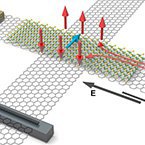
ICN2 researchers, in the framework of the Graphene Flagship, demonstrate that spin currents can be generated and manipulated in graphene-based heterostructures at room temperature. The results of this study, published in Nature Materials, provide relevant information on the fundamental physics of the phenomena involved and open the door to new applications, such as the development of ultra-compact electronic and low energy consumption devices and magnetic memories.
Crazy for Physics launches its fifth edition
2020-01-14
27 High School students will interact during 16 work sessions with researchers from all the participating excellence centers offering exciting experiences that explore the biggest and the smallest scales of the universe. Coordinated from the ICN2 and the IFAE, Crazy for Physics (Bojos per la Física) also involves the UAB, the ICMAB, the ICFO, the ICE, the UB and the Alba Synchrotron.
ICN2 project awarded an ERC Proof of Concept grant
2020-01-15
The ICN2 Physics and Engineering of Nanodevices group, led by ICREA Prof. Sergio O. Valenzuela, has been assigned an ERC Proof of Concept grant to develop novel scalable ultrafast non-volatile memories. The names of the grantees of the 2019 Round Three were announced on January 10.
A consensus statement establishes the protocols to assess and report stability of perovskite photovoltaic devices
2020-01-22
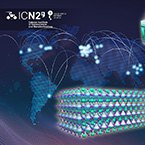
The existing characterization procedures to evaluate emerging photovoltaic devices are not appropriate for halide perovskite solar cells, a new generation of solar cells called to overcome the present state-of-the-art technologies. A vast group of scientists, led by Prof. Mónica Lira-Cantú (ICN2) and Prof. Eugene A. Katz (Ben-Gurion University of the Negev), have reached a consensus on the suitable procedures and the variables to be reported in stability studies of this kind of solar cells. The consensus statement, highlighted in the last issue of Nature Energy, updates the ISOS protocols for the stability assessment of perovskite photovoltaics with additional procedures to account for properties specific to this technology.
A pilot line to create plastic parts with advanced automotive features
2020-01-24
PLASTFUN project develops techniques and methods for the establishment of a pilot line for the industrial manufacture of plastic injection molded parts with surfaces that have advanced functions for the automotive sector. It is a project of the RIS3CAT Industries of the Future (IdF) Community, coordinated by Eurecat and cofunded by FEDER, with the participation the ICN2 among other industrial and research partners.
ICN2 microscopist Marcos Rosado is among the winners of Fotciencia contest
2020-01-24
Fotciencia is a science photography contest organized by the Spanish Foundation for Science and Technology (FECYT) and the CSIC. Marcos Rosado is one of the winners of the Fotciencia17 “micro” category.
The ICN2 co-organises the BIST Symposium on Microscopy, Nanoscopy and Imaging Sciences
2020-01-27
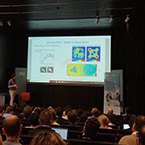
Prof. Jordi Arbiol was one of the coordinators of the event.
The European Commission highlights the advancements on perovskite photovoltaics
2020-01-27
The consensus statement led by Mónica Lira-Cantú and Eugene A. Katz is mentioned as a significant step towards industrialisation of perovskite solar cells.
The ICN2 will shine at Nanotech Japan
2020-01-28
Together with CERCA and CSIC the ICN2 will have a central role at the Spanish Pavilion of the Nanotech 2020 starting tomorrow. With over 350 exhibitors, this event is a huge meeting point for industry and academic institutions. The event is sided by the 1&2D materials congress, starting today, a Japan-Albania-Spain workshop, to be held tomorrow and organized by ICREA Prof. Arben Merkoçi and Phantoms Foundation, and a visit to RIKEN headquarters.
The ICN2 mission to Japan shared research and devices
2020-01-31
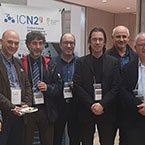
After a whole week in Japan, the ICN2 mission led by the ICN2 Director Pablo Ordejón and Group Leaders such as ICREA Prof. Stephan Roche, ICREA Prof. Arben Merkoçi and Prof. Pedro Gómez, starts its return with many new scientific and commercial contacts. The agenda was full with the 1&2D Materials Conference, the Albania/Japan/Spain workshop involving CERCA, a visit to RIKEN and the NanoTech2020 International Nanotechnology Exhibition and Conference.
ICREA Prof. Arben Merkoçi becomes Co-Editor-in-Chief of Biosensors and Bioelectronics
2020-02-03
Biosensors and Bioelectronics is one of the most influential journals devoted to biosensors. He has been selected together with two more new Co-Editors-in-Chief, Prof. Man Bock Gu (Korea University College of Life Sciences and Biotechnology) and Prof. Chenzhong Li (Florida International University Department of Biomedical Engineering).
BIST gathers over 150 female researchers for 100tífiques
2020-02-03
As 11 February approaches, several scientific institutions are warming up in preparation for the International Day of Women and Girls in Science. That is been the case for BIST, the Barcelona Institute of Science and Technology, of which the ICN2 is a member. Last Thursday 30 January, the BIST held an act in the Barcelona Biomedical Research Park premises to prepare for the 100tífiques event.
Vote for our brain graphene-based devices!
2020-02-04
La Vanguardia has selected the brain-computer interfaces designed by the ICN2 and IMB-CNM-CSIC, with a long list of close collaborators, among the candidates to win its prestigious award Vanguardia de la Ciencia. Help us disseminate the fight against epilepsy, migraine or brain damage with nanotechnology. The winner will be one of the 8 candidates that will be selected through popular vote.
ICN2 for the World Cancer Day
2020-02-04
On the occasion of the World Cancer Day, occurring on February 4 and dedicated to global awareness about cancer, we would like to highlight various research lines oriented at improving tumour diagnosis and treatment in which the ICN2 is involved.
Cerium oxide nanoparticles may improve hepatocellular carcinoma prognosis
2020-02-10
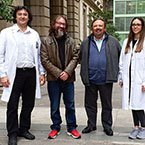
This liver cancer is the most common and is in need of new therapeutic approaches. A long-term collaboration between IDIBAPS and ICN2, led by Prof. Wladimiro Jiménez and Prof. ICREA Víctor F. Puntes, has demonstrated that the administration of cerium oxide nanoparticles in a rat animal model can compete with the best currently available treatments. The Research published in Hepatology shows that human tissues also absorb and retain the nanoparticles, making them a potential and promising new drug strategy.
Nanomaterials for nanotheranostics applications
2020-02-11
The potential applications of nanomaterials to nanotheranostics, i.e. concurrent diagnostics and therapy, are discussed in a review signed by Xin Yi Wong, formerly a member of the ICN2 Nanobioelectronics and Biosensors Group, and by Group Leader ICREA Prof. Arben Merkoçi. The essay has just been published in ACS Nano.
The ICN2 participates in Dissabtes de la Física
2020-02-11
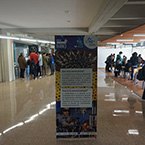
This is a programme organised by the Autonomous University of Barcelona to show different topics of physics to Batxillerat students. Last Saturday, the ICN2 Marketing and Communication Department collaborated in it by preparing a set of activities related to the nanoscale.
DOC-FAM doctoral students celebrate a welcome event
2020-02-11
ICMAB coordinates CSIC’s DOC-FAM excellence DOCtoral training programme in Functional Advanced Materials, which is providing excellent doctoral students to collaborator institutions such as the ICN2. The predoctoral students hired in the second call of this H2020-MSCA-COFUND action offered a short presentation about their research and personal objectives. Two of them, Alejandro Astúa and Alejandro Astúa work at the ICN2 and were supported by their group leaders, Prof. Laura Lechuga and Prof. Pedro Gómez, respectively.
International Day of Women and Girls in Science at the ICN2
2020-02-18
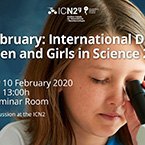
On February 10, an event organized by the ICN2 Equal Opportunities Committee was held at the ICN2 to celebrate the International Day of Women and Girls in Science. Dr Neus Domingo, CSIC Distinguished Researcher in the ICN2 Oxide Nanophysics Group, Dr Jörg Müller, sociologist at the Internet Interdisciplinary Institute (IN3) of the Open University of Catalonia, and Dr Digna Couso, PhD in Science Teaching and Director of the Research Centre for the Education in Science and Mathematics of the Autonomous University of Barcelona (CRECIM), led the discussion with very interesting talks.
“Cientifiques Catalanes 2.0” traveling exhibit
2020-02-19

On February 11, the International Day for Women and Girls in Science, the traveling exhibit “Cientifiques Catalanes 2.0” (Catalan Female Scientists 2.0) has been inaugurated at the Museu de l’Aigua in Salt, Girona. Twenty successful female researchers and communication professionals are portrayed on a series of panels illustrating their career paths.
The research project BioVac (ICN2 / IBEC) wins one BIST Ignite Award
2020-02-20
The project aims to populate nanoparticles with antigens to create a new generation of vaccines against untreatable infections and multi-resistant bacteria. The other award-winning project is BioSpad (ICFO / IFAE).
TVE’s Lab24 celebrates the International Day of Women and Girls in Science
2020-02-21
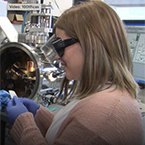
A special edition of the programme interviews a series of female researchers reflecting on their career and gender-related challenges. Dr Neus Domingo, ICN2 researcher and chair of the ICN2 Equal Opportunities Committee, offers her thoughts and views in depth.
New advances in heterostructure design for spintronic and quantum technologies
2020-02-24
A study on hybrid semiconductor-ferromagnetic insulator heterostructures, performed by an international team of researchers including the ICN2 Advanced Electron Nanoscopy Group, has been featured on the cover of the current issue of ACS Applied Materials & Interfaces. This research is relevant to applications in spintronics and emerging quantum technologies.
ICN2 and ICMAB receive journalists to explain their science
2020-02-25
The Journalist-in-the-Lab initiative has chosen these two centres to develop their programme. Two journalists will discuss today and tomorrow with ICN2 and ICMAB researchers involved in FET projects. They will produce dissemination materials related to BrainCom, TOCHA (ICN2), E-Magic and CARBAT (ICMAB).
Second edition of Introduction to Graphene-Based Nanomaterials
2020-02-27
The book is co-authored by Prof. Luis E. F. Foa Torres (Universidad de Chile), ICREA Prof. Stephan Roche (ICN2) and Prof. Jean Christophe Charlier (Université catholique de Louvain). After the success of the first edition, the second one is already available.
ICN2 wins the Ping Pong Masters of Spin against ICMAB
2020-03-02
Held at the ICMAB headquarters with the ICN2 table, the tournament pitted Christian Schäfer and Saptam Ganguly (ICN2) against Xavier Rodríguez and Juri Banchewski (ICMAB).
The ICN2 leads a European project to diagnose the COVID-19 disease in 30 minutes
2020-03-06
The CONVAT project, led and coordinated by Prof. Laura M. Lechuga, CSIC Research Professor at the Catalan Institute of Nanoscience and Nanotechnology (ICN2), will develop a point-of-care platform for rapid diagnosis and monitoring of coronavirus. The biosensor device will also allow the analysis of different types of coronavirus present in reservoir animals, such as bats, to monitor the evolution of these viruses and prevent future infectious outbreaks in humans.
Perovskite solar cells: novel approaches towards the next-generation of solar energy devices
2020-03-06

Dr Sonia Ruiz Raga, postdoctoral researcher at the Renewable Energy Laboratory of the Monash University in Melbourne, discussed novel approaches to study perovskite-based solar cells and to improve their performances, in a seminar held at the ICN2 on 5th March.
Second edition of “To the Mothers of Science”
2020-03-09

This initiative, promoted by BIST, offers grants and a coaching programme for researchers of BIST centres who are mothers working to achieve leadership positions in their scientific careers.
Nano-engineered beads to purify contaminated water from heavy metals
2020-03-10
Researchers of the ICN2 Supramolecular NanoChemistry and Materials group and of the ICN2 Inorganic Nanoparticles group have designed, synthetized and tested microbeads, based on a combination of Metal-Organic Frameworks materials and inorganic nanoparticles, that are able to simultaneously remove multiple heavy metals from polluted water.
The ICN2 renews its commitment to promote gender balance and diversity
2020-03-11
On the occasion of the International Women’s Day, on March 9 the ICN2 hosted an event to discuss about gender balance in research and present the Equal Opportunities and Diversity Management Plan II, which was launched in 2019 and will extend up to 2022.
GraphenicaLab receives one Factories of the Future Award
2020-03-12
Awarded by Advanced Factories, these prizes want to foster innovation in the industrial sector. The spin-off from the ICN2 GraphenicaLab is among the 4 awarded companies, out of more than 170 candidates.
BIST supports multidisciplinary research through the BIST Ignite Programme and Awards
2020-03-12
The awarded projects are BIOVAC (ICN2 / IBEC), which aims to develop a new generation of vaccines against untreatable infections and multi-resistant bacteria, and BIOSPAD (ICFO / IFAE), which will develop more affordable brain diagnostic tests. ICN2 is involved in 4 of the 5 projects selected in the 2020 Ignite Programme, leading one of them (SensMOF) through Dr Leyre Gómez Navascués.
Vetgenomics has obtained an American grant of a patent in collaboration with the ICN2
2020-03-16
The patent, a method to detect target DNA sequences, has been developed with the Nanobioelectronics and Biosensors Group, led by ICREA Prof. Arben Merkoçi.
The ICN2 minimises its activity due to the State of Alarm
2020-03-17
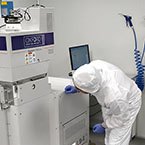
Since last week the ICN2 has adapted its activity level to the quickly evolving context caused by the COVID-19 disease spread. As per today, only very few ICN2 members are allowed to enter the ICN2 facilities, including the research Group led by Prof. Laura Lechuga who is leading the CONVAT project to design a tool to diagnose COVID-19. Most of the personnel will remain active working, contributing to fight this spreading disease by following the indications published by authorities as well as through research.
Women in Graphene meet in virtual reality
2020-03-20
The Graphene Flagship Women in Graphene network held its fourth “Career Development Day”, a networking and training initiative, on March 18-19 in a fully virtual environment. Largely participated, it showed not only the interest for this kind of events, but also the great potentiality of virtual platforms for professional meetings. Dr Cinzia Spinato, of the ICN2 Business and Innovation Department, participated with a talk about bridging the gap between academia and industry.
The ICN2 community collects personal protective equipment and gives it for medical uses
2020-03-21
The ICN2 research groups responded massively to the call coordinated by our Health and Safety Area. While keeping a minimal stock to protect the researchers still working at the ICN2, all the groups decided to empty their stored stock of gloves, protective glasses, masks and alcohol.
ERC Advanced Grant to Prof. Dr Sotomayor Torres to reduce energy use in information technology
2020-03-31
ICREA Prof. Dr Clivia M. Sotomayor Torres, leader of the ICN2 Phononic and Photonic Nanostructures Group, has been awarded an ERC Advanced Grant to lead a five-year project aiming at developing a disruptive technology based on phononic interconnects to reduce energy consumption of electronic circuits.
CoNVaT will design a new diagnostic system for COVID-19 with the best current technologies
2020-04-01
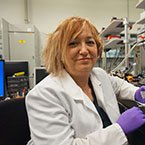
The ICN2 Nanobiosensors and Bioanalytical Applications Group, led by Prof. Laura Lechuga, coordinates a European project with a budget over 2 million euros. They have become an international reference in COVID-19 diagnostics and have prepared a report for the Ministry of Science and Innovation analysing the characteristics, advantages and limitations of current detection systems for diagnosing COVID-19.
The Ministry of Science and Innovation releases a video to explain the key aspects of the CoNVaT project
2020-04-02
The EU project CoNVaT wants to develop a biosensor device to detect the Covid-19 disease. Prof. Laura Lechuga and Dr Maria Soler, from the Nanobiosensors and Bioanalytical Applications Group, explain the project in a way that is accessible to all.
First ICN2 #StayAtHome Seminar: Prof. A. Hagfeldt on nanoscale solar energy converters
2020-04-02
On March 24, the ICN2 hosted its first #StayAtHome Seminar, welcoming Prof. Anders Hagfeldt, Professor in Physical Chemistry at the Swiss Federal Institute of Technology Lausanne (EPFL), in Switzerland, who gave a talk on nanoscale solar energy converters.
La Vanguardia highlights the diagnostic tests by Paperdrop Dx
2020-04-02
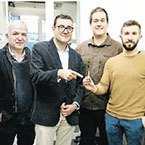
Paperdrop Diagnostics is the ICN2 and ICREA spin-off devoted to the development of rapid diagnostic tests based on paper microfluidics. La Vanguardia remarks their new test for ischemic stroke, based on the evaluation of microRNA, and their efforts to produce a Covid-19 test from this technology.
Prof. Laura Lechuga explains the CoNVaT project on RTVE
2020-04-06
In the edition of 4 April of the “Informe Semanal”, weekly in-depth news show of the RTVE, Prof. Laura Lechuga presented CoNVaT, the European funded project that she leads, which aims at the development of a fast, cheap and handy test device for the diagnosis of the COVID-19.
The spin-off Applied Nanoparticles has prepared materials to entertain and educate the little ones during the confinement
2020-04-07
ICREA Prof. Víctor Puntes, Group Leader of the ICN2 Inorganic Nanoparticles Group, has participated in this project providing some images to “nanocolour”.
The ICN2 and Phantoms Foundation present the event Biosensors for Pandemics
2020-04-07
Join this online conference about nanotech-based diagnostics in emergency situations. The event, with Phantoms Foundation and ICN2 researchers leading the organisation committee, will be held on 6 May. Register before 30 April to get an early bird discount.
Barcelona equips itself with a European first-class collaborative microscopy platform
2020-04-09
The ALBA Synchrotron will host two new major experimental facilities, one dedicated to materials science, valued at 4.1 million euros and led by the Catalan Institute of Nanoscience and Nanotechnology (ICN2), and another meant for molecular biology, valued at 1.7 million euros and headed by the Institute of Molecular Biology of Barcelona (IBMB-CSIC). The new platform also counts with the participation of BIST, CSIC, IRB Barcelona, UAB, ICMAB-CSIC and CRG. The provisional agreement for co-financing through the European Regional Development Fund (ERDF) these two scientific infrastructures has been announced today.
Nanophotonic biosensors for personalized medicine
2020-04-14
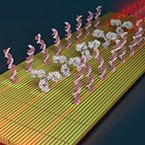
Maria Soler, Olalla Calvo-Lozano, M.-Carmen Estevez and Prof. Laura M. Lechuga, from the ICN2 Nanobiosensors and Bioanalytical Applications Group, have appeared in the cover of Optics & Photonics News with a feature describing the latest advances in nanophotonic technologies for biosensing, the main challenges and limitations, and current prospects.
Prof. Arben Merkoçi explains the role of nanobiosensors for diagnosing COVID-19 in the Albanian television
2020-04-14
The Group Leader of the ICN2 Nanobioelectronics and Biosensors Group was interviewed by Ora News.
Prof. Laura Lechuga participates in a talk on the role of global cities in the context of the COVID-19 pandemic
2020-04-17
Organised by the Barcelona Science and Technology Diplomacy Hub, this was the third talk of a series of events devoted to science and diplomacy in relation to the management of global health crisis. Laura Lechuga shared the virtual stage with experts in bioinformatics, local governance and innovation in cities.
New optical method for rapid and non-destructive dimensional metrology
2020-04-20
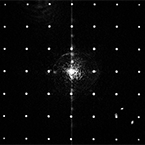
The high production of smart surfaces with nanoscale features requires fast and precise quality control technologies. A new method for this aim is described in Scientific Reports. Former ICN2 postdoctoral researcher at the Phononic and Photonic Nanostructures Group Guy Whitworth is the first author of this work, which uses diffraction to determine the critical dimensions of the studied object. The research was integrated in the FLEXPOL EU project, which seeks to develop a pilot line for the production of a cost-effective antimicrobial adhesive film for its use in hospitals.
Let’s stay at home and talk about Science Communication
2020-04-22
On April 20-21, the ICN2 held two webminars on why and how scientific research and its results should be shared both with peers and society at large. Science communicators Dr. Brynley Pearlstone and Sarah Cosgriff and science journalist Dr Michele Catanzaro provided their perspective and advice to more than one hundred attendees, mainly researchers. The event was coordinated by the ICN2 Human Resources Department in the context of the ICN2 Training Plan and organized by Dr Justin Sperling, of the ICN2 Advanced Medical Electronics group, and Àlex Argemí, Head of the ICN2 Marketing and Communication Department.
With great sadness we share the news of the death of Prof. Albert Figueras
2020-04-23
On April 3, 2020, an extraordinarily determined, active and kind person, and a great friend, passed away. He left a deep mark on institutions such as ICMAB and ICN2.
Teresa Rodrigo, physicist who participated in the discovery of the Higgs boson, dies at the age of 63
2020-04-23
She was a professor at the University of Cantabria and director of the Institute of Physics of Cantabria. She led one of the teams of the CMS experiment of the large hadron collider at CERN.
Dr Claudio Roscini is elected member of the Editorial Board of Dyes and Pigments

2020-04-27
Dyes and Pigments is a journal that covers the scientific and technical aspects of the chemistry and physics of dyes, pigments and their intermediates.
Molecules with a spin on a topological insulator: a hybrid approach to magnetic topological states of matter
2020-04-27
Controlling the interactions at the interface of a magnetic/topological insulator heterostructure is an outstanding challenge with implications in fundamental science and technology. A research led by the ICN2 Atomic Manipulation and Spectroscopy Group and the Physics and Engineering of Nanodevices Group, in collaboration with the Supramolecular Nanochemistry and Materials Group, the CFM-San Sebastián, ETH Zurich, ISM-Trieste and ALBA Synchrotron, has shown that ligands from metal-organic molecules can be used to tailor the properties of these interfaces. The results are presented in ACS Nano.
Prof. Kostas Kostarelos claims scientists should be back in the labs as ‘essentials’ to face COVID-19 emergency
2020-04-27
In an opinion article published today by Nature Nanotechnology, Prof. Kostas Kostarelos shares his views on what may be going wrong in the fight against COVID-19 and how the nanoscience community could contribute. He suggests applying the three key principles in managing an individual cancer patient: early detection, monitoring and targeting. Prof. Kostas Kostarelos recently became Senior Group Leader at the ICN2 after a long-standing collaboration that is now reinforced through the ICN2 Severo Ochoa talent attraction strategy. He will continue directing the Nanomedicine Lab at the University of Manchester, while also leading the new ICN2 Nanomedicine Group.
ICN2 #StayAtHome Seminar: Current Approaches for Perovskite Solar Cells Stability Studies
2020-04-28
Now available on YouTube! The ICN2 Group led by Prof. Mónica Lira Cantu hosted on 17 April 2020 a webinar to discuss about good practices on conducting and reporting stability studies specifically tailored for perovskite solar cells. The event was co-hosted by Prof. Eugene A. Katz, from the Ben-Gurion University of the Negev. Its dynamic format included short presentations by international young experts and was organised by Dr Haibing Xie (ICN2) and Dr Mark Khenkin (HZB).
ICN2 #StayAtHome Seminar: Graphene on the edge
2020-04-28
Watch it on YouTube! Prof. Peter Bøggild, from the Technical University of Denmark (DTU), offered on April 24 a webinar entitled “Graphene on the edge: disorder, chemistry and band engineering in vdW heterostructures”. It was hosted by ICREA Prof. Aitor Mugarza, Group Leader of the ICN2 Atomic Manipulation and Spectrosocpy Group.
Prof. Laura Lechuga is part of the experts advising the government on the COVID-19 crisis
2020-04-28
The Fourth Vice-President of the Government and the Minister of Science and Innovation met with the group created with the aim of giving technical advice to the government and developing strategies to face these kind of situations better prepared in the future.
Prof. Daniel Maspoch wins the Research Excellence Award by the RSEQ
2020-04-28

The Real Sociedad Española de Química (Spanish Royal Society of Chemistry) announced last Friday the winners of several awards, among whom was the ICN2 Group Leader.
Prof. Valenzuela awarded MIT-“la Caixa” Fund for a project on solid-state qubit manipulation
2020-04-28

A project aiming at developing large-scale integrable devices for application in quantum computing, proposed by ICREA Prof. Sergio Valenzuela and MIT Prof. William Oliver, will be funded through the MIT-Spain “la Caixa” Foundation Seed Fund Programme. The 12 selected projects have been announced on April 20.
First “confined interview” with ICREA Prof. Víctor F. Puntes
2020-04-30
Science communicator Jordi Díaz presented last Tuesday his new initiative: “Entrevistas confinadas” (confined interviews), in which he will explore the different sides of nanoscience and nanotechnology in society (applications, ethics, education, arts…). His first guest was ICREA Prof. Víctor F. Puntes, Leader of the ICN2 Inorganic Nanoparticles Group.
Share your expertise through the Open Knowledge Programme
2020-05-04
The ICN2 Open Knowledge Programme is a forum for the exchange of knowledge, experiences and skills among ICN2 colleagues. At the moment, nearly 30 videos grouped in 8 different topics are available. The last one is an update on the tools and processes at the Nanofabrication Facility, by Dr Raúl Pérez.
ICN2 #StayAtHome Seminar: DNA-based nanodevices for the detection of diagnostic antibodies
2020-05-07
Prof. Francesco Ricci, from the University of Rome, offered on April 30 a webinar discussing DNA-based nanodevices. The seminar, hosted by ICREA Prof. Arben Merkoçi, Group Leader of the ICN2 Nanobioelectronics and Biosensors Group, is now available on the ICN2 YouTube channel.
ICN2 #StayAtHome Seminar: Dynamic Spray-Gun Deposition of 1D and 2D nanomaterials
2020-05-08
Prof. Paolo Bondavalli, from Thales Research and Technology, offered a webinar entitled “Dynamic Spray-Gun Deposition of 1D and 2D nanomaterials: applications for sensing, EMI, energy and information storage”. The seminar, hosted by ICREA Prof. Arben Merkoçi, Group Leader of the ICN2 Nanobioelectronics and Biosensors Group, is now available on the ICN2 YouTube channel.
Vermú de Nanociencia: webinars for everybody about nanotechnology
2020-05-08
An offspring of the “10ALAMENOS9” Scientific Festival, the “Vermú de Nanociencia” webinar series proposes three lectures per week on nanoscience and nanotechnology research and application. Provided by experts in the field coming from different institutions, these webinars are oriented to a non-expert public and are freely available on Youtube.
The ICN2 Annual Report 2019 is now available
2020-05-11
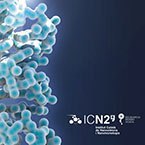
The Annual Report offers a closer view to the activity of the institute throughout the year. Learn about the publications, the projects and the people that make it possible.
Happy Women in Mathematics Day!
2020-05-12
May 12 is the International Women in Mathematics Day. This is the second year it is celebrated. The day is in honour of Maryam Mirzakhani, born the 12 May 1977, the first and only woman to win the Fields Medal. A film showing her life and achievements is being screened these days, open to anyone who wants to watch it until May 19.
The first ASEVA-Toyota Awards on science and technology of vacuum are announced
2020-05-13
ASEVA is the Spanish Association of Vacuum and its Applications. ICREA Prof. Aitor Mugarza, Group Leader of the ICN2 Atomic Manipulation and Spectroscopy Group, was part of the scientific committee that selected the winners.
Light-enhanced flexoelectricity discovered in perovskites
2020-05-19
A research recently published on Nature Materials, carried out jointly by the Catalan Institute of Nanoscience and Nanotechnology (ICN2), the Institute of Materials Science of Barcelona (ICMAB), Nanchang University (China) and Chongqing University (China), has demonstrated that light can increase by orders of magnitude the electricity produced by bending (flexoelectricity) in semiconductors. This phenomenon, called photoflexoelectricity, allows a single device to harvest energy from multiple environmental sources.
A dozen of research projects against COVID19 are led by women in Catalonia
2020-05-20

Prof. Laura Lechuga, Group Leader of the ICN2 Nanobiosensors and Bioanalytical Applications Group, leads the European project CoNVaT for rapid diagnostics and monitoring of the virus.
The SOMM Alliance defends the role of mathematics in high school studies
2020-05-20
Luis Serrano Pubul, director of the CRG and president of SOMMa, and Karel W.F. De Pourq, communication manager of SOMMa, have presented a manifesto remarking the importance of mathematics in preuniversity studies. The text has been published in El País newspaper.
ICN2 Health & Safety campaign to prevent COVID-19
2020-05-26
The ICN2 Health & Safety Area has prepared an internal campaign for the prevention of the COVID-19 in the ICN2 premises. It consists of a series of posters and signals distributed throughout the ICN2 that show rules and tips to help us maintain health and safety measures against the coronavirus.
Nanoneedles to increase the capacity and robustness of digital memories
2020-05-26
Researchers at the UAB, ICMAB and the ALBA Synchrotron, in collaboration with the UB and ICN2, have developed a new technique to locally modify the properties of a metamagnetic material. The method consists in applying local pressure to the surface of the material using nanometric needles and allows a much more easy and local modification than current methods. The research opens the door to a more accurate and precise control of magnetic materials and allows to improve the architecture and capacity of magnetic digital memories.
Paper based sensors, a new book edited by ICREA Prof. Arben Merkoçi
2020-05-26
This is the 89th volume of the Wilson and Wilson’s Comprehensive Analytical Chemistry series, published by Elsevier.
The Graphene & 2DM Industrial Forum 2020 is celebrated online
2020-06-02

The event was co-organised by Phantoms Foundation and the ICN2. ICREA Prof. Stephan Roche was scientific conference Chair.
The Graphene Flagship launches a Covid-19 Working Group
2020-06-03
It aims to connect researchers, funders and stakeholders in order to make the best use of graphene and related materials in fields such as virology and biosensing. ICN2 Business Developer Dr Cinzia Spinato and ICREA Prof. and Group Leader Arben Merkoçi are part of the Working Group.
Learn about TOCHA and BrainCom with Journalists-in-the-Lab
2020-06-04
The visit of two young journalists last February has resulted in a video describing BrainCom and a story on the TOCHA project. The first project works on brain-computer interfaces to restore the ability to speak and the second works on the next generation of electronic, photonic and phononic devices. Those are European projects led by the ICN2, but the visit also involved researchers from ICMAB.
Join the 5th Scientific Meeting of PhD Students at UAB campus
2020-06-05
Organized by PhD fellows of the ICMAB, IMB-CNM, ICN2 and the UAB, it will be held at the UAB and IMB-CNM premises during September 17-18, 2020. The meeting is addressed to PhD students interested in sharing their research and connecting with other research groups. You can send your abstracts before 31 July 2020.
New stage in the reactivation of the ICN2
2020-06-09
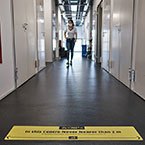
After 4 weeks in which a progressive reactivation of our activity at the ICN2 has taken place, this Monday the ICN2 has started a new stage with some easing measures. Research stays or having meals in the dining room individually are among the new actions permitted. Check all of them in the intranet.
New investors for INBRAIN to develop graphene-based implants against brain disorders
2020-06-11
INBRAIN Neuroelectronics, a spin-off of the Catalan Institute of Nanoscience and Nanotechnology and ICREA, receives funding from Sabadell Asabys and Alta Life Sciences, as well as ICF and Finaves, which will allow the company to speed up the development of novel graphene-based implants to optimise the treatment of brain disorders, such as Parkinson's and epilepsy.
Microencapsulated mosquito repellents to prevent tropical diseases spread
2020-06-12
The MINECO and FEDER funded MICROREP project, participated by the ICN2 Nanostructured Functional Materials Group, concluded recently with the production of smart microcapsules containing repellent substances and fragrances for application on textiles.
ICREA Prof. Dr Clivia M. Sotomayor-Torres explains the keys to obtaining an ERC Advanced Grant
2020-06-15
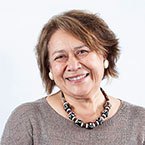
She closed a webinar offered by the ERC National Contact Points on how to prepare a successful Advanced Grant 2020 proposal. The Advanced Grant 2020 call is open until 26 August 2020.
The European Commission releases a video showing four European projects against coronavirus held in Catalonia
2020-06-15
Núria Montserrat (IBEC), Alfonso Valencia (BSC), Laura M. Lechuga (ICN2) and Gabriel Anzaladi (Eurecat) describe their projects in the video.
Nanotechnology-enabled approaches against COVID-19
2020-06-16
Nanotechnology can play its part in the fight against the COVID-19 pandemic. More than a dozen scientists, including ICREA Prof. Arben Merkoçi, Group Leader at the ICN2, have analysed the role of nanotechnology in prevention, therapeutics, diagnostics and other facets needed to address this and future pandemics.
Training researchers to write successful ERC Grant proposals
2020-06-18
The ICN2 Strategy Development Office offered to research group leaders a training on best practices to write a successful ERC grant proposal. Freelance consultant Stewe Bekk and researcher and grant writing experts Dr Malte Beringer shared their knowledge in the field and provided relevant advice for preparing competitive proposals.
Dr Alex El Sachat receives the Special Award for Doctoral Studies
2020-06-22

He is currently a postdoc at the ICN2 Phononic and Photonic Nanostructures Group.
The Graphene Flagship Spintronics WP enters its last and most applied phase
2020-06-23
A kick-off event finishing today summarises the next steps to be taken by the work package led by ICREA Prof. Stephan Roche into Core 3, the new phase of the Graphene Flagship designed to advance toward the commercialisation of graphene and layered materials. The event served to introduce new companies and new challenges that will boost graphene-enabled spintronic technologies to higher technology readiness levels.
Amorphous boron nitride shows excellent insulating properties for next generation of electronics
2020-06-25
The Ulsan National Institute of Science and Technology (UNIST, Republic of Korea) and the Samsung Advanced Institute of Technology (SAIT) lead a collaboration involving two teams partner of the Graphene Flagship, the Catalan Institute of Nanoscience and Nanotechnology (ICN2) and the University of Cambridge (UK).They report today in Nature the synthesis of a thin film of amorphous Boron Nitride (a-BN) showing extremely low dielectric characteristics, high breakdown voltage and likely superior metal barrier properties, which represents a significant achievement for future electronics.
LEGOCHIP project funded to develop a lab-on-a-chip sensor based on nanoporous graphene
2020-06-26
A recently funded European FLAG-ERA project, called LEGOCHIP and led by Dr Cesar Moreno from the ICN2 Atomic Manipulation and Spectroscopy group in close collaboration with the NanoBiosensors and Bioanalytical Applications group, will integrate multifunctional nanoporous graphene into nanophotonic biosensors, in order to develop a sensor bio-functionalization protocol and design a novel lab-on-a-chip device. This second part of the project will be directed by senior researcher Dr Maria Soler.
Enhancements in SIESTA for better electronic-structure simulation
2020-07-01
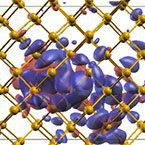
A recent paper in The Journal of Chemical Physics summarises the latest improvements of the SIESTA code, with regards to capabilities, performance, usability and visibility in the electronic structure community. ICN2 Director and Group Leader Pablo Ordejón is among the authors of the work, which also comments on current and future developments. The ICN2 is currently looking for a senior SIESTA developer to keep improving the capabilities of the code.
Prof. Paul Weiss on nanotechnology approaches to biology and medicine
2020-07-01
A new event of the Manuel Cardona Lectures series was organized by the ICN2 and held on June 16. Prof. Paul Weiss, Distinguished Professor at UCLA and Editor-In-Chief of ACS Nano, was invited by ICREA Prof. Arben Merkoçi, leader of the ICN2 Nanobioelectronics and Biosensors group, to give a talk on nanotechnology approaches to biology and medicine. Prof. Weiss also shared the most important results accomplished during his career and some of the lessons learnt along the way.
The Catalan final of the nanostories competition is celebrated with a great success of participation
2020-07-02
The contest is part of the Nanoscience and Nanotechnology Festival, 10alamenos9, which aims to bring this science closer to young audiences. A jury formed by specialists in science and dissemination chose the winners and read their stories in an online ceremony.
The European Panel for the Future of Science and Technology discusses the role of nanotechnology in medicine
2020-07-08
An online seminar on the future of nanotechnology in biology and medicine was held on June 25 by the European Parliament Panel for the Future of Science and Technology (STOA). Prof Laura Lechuga, leader of the ICN2 Nanobiosensors and Bioanalytical Applications Group and coordinator of the European project CoNVaT, was invited to present her project and discuss the impact of nanotechnology in diagnostics and prevention of future pandemics.
Spray-drying to produce MOFs and COFs in industrial applications
2020-07-14
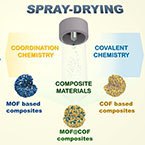
MOFs and COFs are porous materials with a broad range of applications, such as gas storage, CO2 capture or drug delivery. The ICN2 Supramolecular NanoChemistry and Materials Group has demonstrated in a work in Accounts of Chemical Research that spray-drying is a suitable method for producing this kind of materials.
Unlocking the brain with novel graphene technology
2020-07-16
Recent developments on a novel graphene-based sensing platform, which provides high resolution, real-time measuring of brain activity, could be the gateway to unlocking a superior understanding of the brain. This research, developed in the framework of the EU project BrainCom, coordinated by ICREA Prof. Jose A. Garrido, leader of the ICN2 Advanced Electronic Materials and Devices Group, is reported in four papers recently published on high impact journals.
The ICN2 participates in the IEEE-NANO online conference
2020-07-21
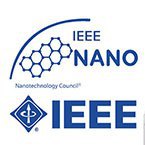
ICREA Prof. Jordi Arbiol, ICREA Prof. Dr Clivia M. Sotomayor-Torres and Postdoctoral researcher Juliana Jaramillo are among the speakers of the event. Dr Juliana Jaramillo is one of the youngest plenary speakers in the whole conference series so far.
NANO-ERT: a project developing a new nanotechnology-based therapy for Parkinson’s disease funded by BBVA
2020-07-21
A project (NANO-ERT) aiming at applying nanotechnology to the development of a novel therapy against Parkinson’s disease, which will be carried out by a consortium including the ICN2, has been granted funding from the BBVA Foundation. This research will be led by the Vall d'Hebron Research Institute (VHIR) and will involve, besides the ICN2, the Universitat Autónoma de Barcelona (UAB).
Two LaCaixa Junior Leaders at the ICN2
2020-07-21
Dr Arnau Carné Sánchez and Dr Sonia Ruiz Raga receive a “LaCaixa” Junior Leader grant to carry out their research at the ICN2.
5 projects selected for the ICN2 Severo Ochoa Seed Funding
2020-07-21
The awardees are Maria Soler, Leyre Gómez, César Moreno and Emigdio Chávez, Ramon Garcia, and Adriana Figueroa, Alexander Block and David García. The selected projects will facilitate new knowledge about nanobiosensors, photonic sensors based on porous metal-organic polyhedra, engineering of nanoporous graphene, intra-cortical probes and spintronic devices.
The Severo Ochoa call recognises the excellence of BIST centres
2020-07-23
These awards aim to finance and accredit research centres and units that demonstrate scientific impact and leadership at an international level and that collaborate with their social and business environment. ICFO and IRB Barcelona are the BIST centres that have renewed their accreditation, whereas ICIQ has recovered it.
The European Commission interviews ICREA Prof. Stephan Roche to talk about graphene
2020-07-24
The ICN2 Group Leader shows the different applications of graphene and the relevance of the Graphene Flagship to accelerate the innovation process.
BIST fosters the careers of 10 mother scientists with coaching and financial aid
2020-07-27

The recipients selected in the second edition of “To the Mothers of Science” programme will receive a monthly salary top-up of €400 over the course of one year, as well as training to reinforce leadership skills.
A career in research is subject to iniquity and comparative advantage: Prof. Dr Clivia Sotomayor Torres on diversity in Academia
2020-08-07
In an opinion article recently published on Optics & Photonics News, ICREA Prof. Dr Clivia Sotomayor Torres, group leader at the ICN2, shares her thoughts about diversity in research and how gender, ethnicity and other sociocultural aspects can affect academic career paths.
Prof. Miquel Salmerón awarded the LBNL Shirley Award for his research on surface science
2020-08-13
Prof. Miquel Salmerón, a senior staff at the Lawrence Berkeley National Laboratory (LBNL) and UC Berkeley and the President of the ICN2 Scientific Advisory Board, has been awarded the 2020 David A. Shirley Award for Outstanding Scientific Achievement at the LBNL Advanced Light Source (ALS).
New theoretical studies of material properties as a function of thickness in chalcogenides
2020-08-17
A study carried out by researchers from the Institute for Theoretical Solid State Physics in Aachen (Germany) and from the ICN2, and recently published in Advanced Materials Communications, reveals that materials of two subfamilies of chalcogenides show different dependence of their properties on slab thickness. This reflects on ferroelectric characteristics, which are relevant to their applications in information technology.
Our 2019 laCaixa Junior Leaders in the spotlight: Dr Sonia Ruiz Raga
2020-08-20

Recently, the ICN2 welcomed two recipients of the 2019 laCaixa Junior Leader grant: Dr Sonia Ruiz Raga and Dr Arnau Carné Sánchez. We interviewed Sonia to learn more about her and her research interests and future projects.
Our 2019 laCaixa Junior Leaders in the spotlight: Dr Arnau Carné Sánchez
2020-08-20
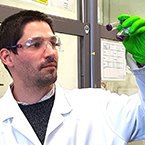
Recently, the ICN2 welcomed two recipients of the 2019 laCaixa Junior Leader grant: Dr Sonia Ruiz Raga and Dr Arnau Carné Sánchez. We interviewed Arnau to learn more about him and his research interests and future projects.
Fast electrical modulation of nanoscale erbium-graphene systems towards quantum technology applications
2020-08-26
A research recently published in Nature Communications shows that a nanolayer of erbium light emitters combined with monolayer graphene exhibits extremely strong near-field interactions, whose strength can be modulated orders of magnitude faster than the natural decay rate of the erbium emitters. This hybrid erbium-graphene material platform opens up exciting possibilities, including manipulation of quantum states. This study has been carried out by a team of scientists that includes ICN2 Junior Group Leader Dr Klaas-Jan Tielrooij, and colleagues from ICFO in Barcelona and IRCP in Paris.
Focus on 2D Materials for Sensing and Biosensing Platforms by ICREA Prof. Arben Merkoçi
2020-08-28
The ICN2 Group Leader is the guest editor of a collection of articles in 2D Materials about sensing and biosensing devices using graphene and other 2D materials.
More robust nanomotors for drug delivery developed with nano-encapsulation technologies
2020-09-04
Researchers from the Institute for Bioengineering of Catalonia (IBEC) and the Catalan Institute of Nanoscience and Nanotechnology (ICN2) have developed a novel type of encapsulated enzymatic nanomotors, named LipoBots, for medical applications. As explained in a paper published in Advanced Functional Materials, the LipoBots are self-powered and preserve their enzymatic functionalities after exposure to harsh conditions, as those of the human stomach environment.
New studies on particle entanglement dynamics in graphene for alternative quantum computing protocols
2020-09-07
A new research recently published as a Rapid Communication in Physical Review B investigates intra-particle entanglement dynamics in graphene, which emerge from nonlocal correlations between intra-particle spin and pseudo-spin of electrons. The results of this study, developed by researchers of the ICN2 Theoretical and Computational Nanoscience group, open a door towards future alternative quantum information processing techniques.
Colloidal dispersions of nanosheets for catalysis
2020-09-16
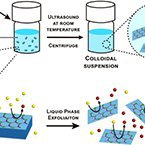
Researchers from the ICN2 Nanostructured Functional Materials Group, in collaboration with other institutions, have used a liquid phase exfoliation process to obtain nanosheets with enhanced electrocatalytical properties. The work is published in Ultrasonics Sonochemistry.
Nanophotonic biosensors for rapid diagnostics of COVID-19 and other respiratory virus infections
2020-09-21
In a thorough review recently published in ACS Sensors, researchers from the ICN2 NanoBiosensors and Bioanalytical Applications group, led by Prof. Laura M. Lechuga, provide an overview of the current diagnostic techniques for respiratory viruses, as the SARS-CoV-2, causing agent of COVID-19, and discuss how nanophotonic biosensor technologies can contribute to the development of new fast, highly sensitive and affordable diagnostic tests.
The ICN2 co-leads a roadmap on quantum materials
2020-09-23
Twenty-nine leading experts of materials science, quantum information, condensed-matter physics and related areas review the diverse materials and challenges in the field. The roadmap points out the directions in which new research is necessary, combining both fundamental and applied interests, such as quantum computing.
Dr PengYi Tang receives the Extraordinary Doctoral Award
2020-09-25
He performed his research in materials science in the ICN2 Advanced Electron Nanoscopy Group.
A Female Perspective on Robotics and Information Technology: Prof. Clivia Sotomayor at Future Tech Week 2020
2020-09-28
ICREA Prof. Clivia Sotomayor-Torres, leader of the ICN2 Phononic and Photonic Nanostructures group, participated in the Future Tech Week 2020, an initiative of the European Innovation Council Pathfinder. She talked about PHENOMEN, the H2020 FET-Open project that she coordinates, and shared her personal experience with the European Commission FET Programme.
Dr Luis Carlos Garzón Tovar receives the Extraordinary Doctoral Award
2020-10-01

He performed his research in the ICN2 Supramolecular Nanochemistry and Materials Group.
Interface engineering to control spin-orbit torques in topological insulator heterostructures
2020-10-01
A group of scientists from the ICN2 Physics and Engineering of Nanodevices Group and Osaka University have demonstrated that intermixing in heterostructures plays a critical role in the generation of spin-orbit torques. Inserting a suitable normal metal spacer, material intermixing is reduced and the topological insulator properties at the interface are largely improved. The work is published in Nano Letters.
Prof. Gustau Catalán on flexoelectricity for biomedical applications
2020-10-05
ICREA Prof. Gustau Catalán, leader of the ICN2 Oxide Nanophysics group, talks about his research on flexoelectricity and biocompatible materials in an article published in the magazine El País Retina. The reportage also includes interviews with other Spanish researchers working in related fields.
Open access to the EU COVID-19 research results
2020-10-05
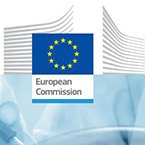
The ICN2 has signed the European Commission Manifesto for maximizing the accessibility of research results in the fight against COVID-19.
2nd Women in Renewable Energy Day - Severo Ochoa Workshop dedicated to the Energy Application Domain
2020-10-05
The ICN2 invites you to attend the 2nd Severo Ochoa Workshop on Energy and the 2nd Women in Renewable Energy (WiRE) Day, which will be held jointly on 16 October 2020. Register now to learn about new trends in renewable energy and the important role played by female researchers and engineers in this field.
Three FEDER grants received: a story of successful collaboration between ICN2 researchers and the Business and Innovation Department
2020-10-08
The Nanostructured Functional Materials group, led by Dr Daniel Ruiz Molina, has been recently awarded three AGAUR-FEDER grants – one INNOVADORS and two LLAVOR – to develop smart windows, photoactive inks and nanofilms for medical applications.
A novel thermal diode operating at high temperatures based on nanostructured silicon membranes
2020-10-13
Researchers from the ICN2 Phononic and Photonic Nanostructures Group and the Adam Mickiewicz University (Poland) have designed, fabricated and characterized an all-silicon device working as a thermal diode at high temperatures and in moderate vacuum. The results of this research, recently published in Nano Energy, can open the way to new strategies of thermal energy management and harvesting.
Prof. Laura Lechuga receives the 2020 Ada Byron Award to Women Technologist
2020-10-15
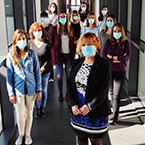
The 2020 Ada Byron Award and Ada Byron Young Award to Women Technologist have been conferred respectively to Prof. Laura Lechuga, CSIC research professor and group leader at the ICN2, and to Prof. Susana Ladra González, professor at the University of A Coruña.
The 2nth Annual Congress of Nanoscience and Nanotechnology (IICANN-SCN2 2020) registration now open
2020-10-16
The Catalan Society of Nanoscience and Nanotechnology (SCN2) will hold the Second Edition of its Annual Congress of Nanoscience and Nanotechnology (IICANN-SCN2 2020) on November 19th. This year’s edition will take place online and aims to promote and give visibility to researchers developing their work in this field in Catalonia.
AGAUR FI prioritisation criteria for early-career research staff contracts in 2021
2020-10-19
The shared document outlines how contracts will be prioritised.
Graphene 2020 starts today and goes virtual
2020-10-19
The Graphene 2020 Conference dedicated to graphene and 2D materials technology kicked off today, October 19, and will continue until October 23. Held completely virtually, this year's edition will offer five days of plenary talks, parallel workshops, PhD and poster sessions, an industrial forum and an exhibition. The ICN2 is involved in the organization and will be present with 9 talks, 13 posters and a booth under GraphCAT project shared with BIST and ICFO.
Prof. Laura Lechuga awarded the 2020 Rei Jaume I Prize in New Technologies
2020-10-20
The prestigious Rei Jaume I Award, sponsored by the Valencian Government (Generalitat Valenciana), is conferred to experts who have significantly contributed to the advancement of their research fields. It recognises the accomplishments in six categories with a golden medal and a 100,000-euro cheque to be used mainly for research and innovation activities. Prof. Laura M. Lechuga Gomez receives the New Technologies Award for her long innovative career in the field of nanobiosensors.
QuantumCAT: a research and industry hub for accelerating quantum technologies
2020-10-20

A consortium of researchers — led by the Catalan Institute of Photonic Sciences (ICFO) and including the Catalan Institute of Nanoscience and Nanotechnology (ICN2) — and industry partners in Catalonia joins forces to develop the Quantum Technologies Hub.
Top female researchers in renewable energy discuss gender balance at the WiRE-SO workshop
2020-10-22
The 2nd annual Women in Renewable Energy workshop, hosted under the umbrella of the ICN2 Severo Ochoa workshops, was held online on the last 16 October. This event, dedicated to energy storage application and key trends in sustainability, was organized by Prof. Mónica Lira from the ICN2 and Prof. Zakya Kafafi from Lehigh University in Bethlehem (USA). The excellent scientific sessions were followed by a roundtable on the role of women in science, their challenges, permanent discrimination, and the possibility of transforming scientific research into a more inclusive environment.
Dr Maria Soler awarded at the Biocat virtual workshop “Chasing Covid”
2020-10-23

Dr Maria Soler, from the ICN2 Nanobiosensors and Bioanalytical Applications group, received the "Game Changer" award at the virtual workshop "Chasing COVID", held on October 22. She presented her group's project ConVat in the "Medtech & Population and genetic studies" session.
A guide to design, fabricate and apply nanoparticle-based lateral flow immunoassays
2020-10-26
A tutorial published in Nature Protocols, authored by researchers of the ICN2 Nanobioelectronics and Biosensors Group led by ICREA Prof. Arben Merkoçi, describes how to design nanoparticle-based lateral flow assays for detecting biomolecules in clinical, biological and environmental samples.
Leading scientific associations and innovative companies demand to place R&D at the heart of Spain’s strategy
2020-10-28
The Severo Ochoa - María de Maeztu Alliance (SOMMa), of which the ICN2 is part, together with many other institutes and companies working in research and innovation, have signed a document calling for Spain to change its economic model and give a central role to research and innovation (R&D). The document aims to add and provide strategic solutions to the recent Pact for Science and Innovation that the Spanish Government has just announced.
ICN2 subscribes to the CSIC’s Ethics Committee declaration regarding ethical research in times of COVID-19
2020-10-29
The CSIC’s Ethics Committee has published a statement to highlight and remind the value of the ethical and integrity principles that have to inform all scientific research. In this COVID-19 pandemic, ethics remain more important than ever. The ICN2 subscribed to this commitment and invites the research community to reflect on this essential subject.
PhD student María Tenorio awarded at Graphene2020 conference
2020-10-29
Doctoral Student María Tenorio, from the ICN2 Atomic Manipulation and Spectroscopy group, received one of the awards for best PhD oral presentation at Graphene2020. This online conference was held last week from 19 to 23 October.
New studies on ferroelectric domain walls reveal peculiar mechanical properties
2020-10-29
A research on the mechanical properties of ferroelectric 180° domain walls, carried out by an international team of researchers led by the Oxide Nanophysics group and the Advanced AFM Laboratory of the ICN2, has revealed that domain walls are mechanically softer than the ferroelectric domains they separate, although the domains are identical. These results and a theoretical interpretation of them have been recently published in Physical Review X.
Prof. Javier Lafuente elected new Rector of the UAB
2020-11-03
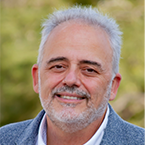
Chemical Engineer Prof. Javier Lafuente Sancho has been elected Rector of the Universitat Autònoma de Barcelona (UAB) in the online elections that took place on 27-28 October.
Prof. Daniel Maspoch receives the Research Excellence Award 2020 by the Spanish Royal Society of Chemistry
2020-11-04
The 2020 Awards by the Real Sociedad Española de Química (RSEQ or Spanish Royal Society of Chemistry) have been conferred today, November 4, in a ceremony held for the first time online.
BStartup Health, a Banco Sabadell's program, invests in ICN2 spin-off INBRAIN
2020-11-04
INBRAIN Neuroelectronics, a spin-off of the Catalan Institute of Nanoscience and Nanotechnology and ICREA, receives a new funding from Banco Sabadell BStartup Health wich allow the company to speed up the development of novel graphene-based for brain restoration.
Novel highly transparent films with very fast photo-induced color change
2020-11-05
Researchers of the ICN2 Nanostructured Functional Materials group and of the Futurechromes SL company have developed a simple and straightforward technique to produce solid photochromic films whose light-response is fast and tunable. Thanks to their high transparency, these materials can be applied to fabricate smart glasses, helmets and windows, as well as rewritable displays.
Novel high-sensitivity and fast response magnetometer
2020-11-05

A team of researchers led by members of the ICN2 Photonic and Phononic Nanostructures group and the Physics and Engineering of Nanodevices group has designed a novel type of magnetic field sensor – i.e. a magnetometer – characterized by high-sensitivity and fast response.
The FOTOCIENCIA 17 exhibition in tour throughout Spain
2020-11-11
The winning photos of the 17th edition of the annual scientific photography contest FOTCIENCIA are now collected in an exhibition, which can be currently visited in Madrid and Pamplona and, in the future, will be available in other cultural, educational and research centres of the country.
Blue-light emitting heterojunctions based on graphene could open the way to new optoelectronic devices
2020-11-12
Researchers from the Ulsan National Institute of Science and Technology (UNIST, Republic of Korea), in collaboration with ICREA Prof. Stephan Roche, head of the ICN2 Theoretical and Computational Nanoscience group, demonstrated that heterojunctions between graphene and boron nitride, in in-plane heterostructures, emit a blue photoluminescence, which could be potentially used for optoelectronics devices.
Prof. Laura Lechuga is assigned the Spanish “Juan de la Cierva” National Research Award
2020-11-13
The award recognises the impact of her research career in terms of technology transfer. Prof. Laura Lechuga is Group Leader of the ICN2 NanoBiosensors and Bioanalytical Applications Group, Full Professor of the Spanish National Research Council (CSIC) and Group Leader of the Networking Biomedical Research Centre (CIBER-BBN). She is the first woman to be awarded this recognition, established in 2001 by the Spanish Government, which has been announced today by the Ministry of Science and Innovation (MICINN).
Collaboration established between the ICN2 and FarmaLab Omega ZETA
2020-11-16
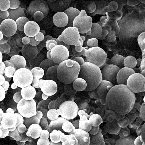
The company FarmaLab Omega ZETA S.L and the ICN2 Supramolecular Nanochemistry and Materials group, led by ICREA Prof. Daniel Maspoch, signed a collaboration agreement.
Ramon Tremosa, the Catalan Minister of Business and Knowledge, announced a new public-private investment fund
2020-11-18
The Minister of Business and Knowledge of the Generalitat de Catalunya, Ramon Tremosa, visited ALBA Synchrotron on Monday 16 November to meet several directors of Catalan research centers, including Prof. Pablo Ordejón, ICN2 Director. He announced the creation of a public-private investment fund for promoting scientific knowledge and entrepreneurship initiatives.
Happy LGBTQ+ STEM Day!
2020-11-18

The ICN2 supports the international LGBTQ+ STEM Day initiative to promote diversity and inclusion in science and research.
Harnessing the peculiar properties of 2D materials for biomedical applications: a review
2020-11-19
A paper by members of the ICN2 Nanobioelectronics and Biosensors Group, led by ICREA Prof. Arben Merkoçi, and recently published in Nanoscale, discusses how the unique properties of two dimensional materials can be beneficial for biosensors and biomedical applications and provides an overview of such applications.
A novel approach for the synthesis of edge-functionalized graphene nanoribbons
2020-11-26
A technique for the synthesis of edge-fluorinated graphene nanoribbons that guarantees the stability of the functional group throughout the whole process has been developed by a team of researchers led by ICREA Prof. Aitor Mugarza, head of the ICN2 Atomic Manipulation and Spectroscopy group, and Prof. Diego Peña, from the University of Santiago de Compostela (Spain).
The ICN2 at the Science Week and the Researchers’ Night
2020-11-26
This morning, under the umbrella of the 25th Science Week celebrated between the 14th and 29th of November in Catalunya, ICN2 held its first virtual visit to a school in Barcelona. Dr Maria Soler and Dr Belén Ballesteros participated in the telematic conference and, after a virtual visit to their facilities, held an interesting conversation with the students. Tomorrow night, at the European Researcher’s Night, the ICN2 will be involved in many talks and interactive workshops. Join us!
2020 Rei Jaume I Awards ceremony held today in Valencia
2020-11-30
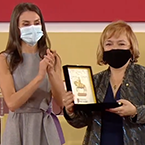
Prof. Laura M. Lechuga Gomez, leader of the ICN2 Nanobiosensors and Bioanalytical Applications group, was conferred the New Technologies Award.
BrainCom project awarded at the International Conference on Electronics Circuits and Systems for Best Paper
2020-12-03
The 27th International Conference on Electronics Circuits and Systems (ICECS 2020) was held virtually between 23rd and 25th November 2020. The European project BrainCom has received an award for the Best Paper for a work carried out by the ICN2 Advanced Electronic Materials and Devices group in collaboration with CSIC Institute of Microelectronics of Barcelona.
A magnetic switch with lower energy consumption developed in collaboration with the UAB
2020-12-09
A joint research conducted by the UAB and involving the ICN2 has demonstrated the possibility to switch magnetic polarization by voltage in a new class of easy-to-fabricate materials containing nitrogen. These results may be used to reduce energy consumption in electronic technologies.
Prof. Laura Lechuga explains her COVID-19 diagnostic project on RTVE’s news programme
2020-12-10
The CoNVaT project dedicated to the development of a fast, cheap, portable and reliable test for the diagnostics of COVID-19, led by Prof. Laura Lechuga, head of the ICN2 NanoBiosensors and Bioanalytical Applications group, has been featured in a news report called “Beyond the vaccine” by RTVE. Broadcast on December 9, this episode of the “Comando Actualidad” programme was dedicated to the research about coronavirus (vaccine, therapy and diagnostics) currently under development in Spain.
Prof. Kostarelos and Dr Aguilar talk about graphene and neural interfaces on SKRAPS
2020-12-15
Prof. Kostas Kostarelos, leader of the ICN2 Nanomedicine group, and Dr Carolina Aguilar, CEO of the INBRAIN Neurolectronics company, have been interviewed in a recent episode of the SKRAPS podcast programme. They talked about the great properties of graphene, medical applications of this extraordinary material, as well as their personal journey in research and business.
Graphene-based hybrid material enables efficient light conversion of invisible light
2020-12-16
Researchers from various institutes in Barcelona and Germany have demonstrated that a hybrid material consisting of a monolayer of graphene and a metallic grating structure is an excellent candidate for relevant commercial applications in which efficient nonlinear conversion of (invisible) terahertz light is required. This work has just been published in ACSNano, in a paper with Dr Klaas-Jan Tielrooij, leader of the ICN2 Ultrafast Dynamics in Nanoscale Systems group, as last author. Metal grating combined with graphene opens up the road to terahertz nonlinear photonic applications.
Maria A. Blanco takes over the presidency of the Severo Ochoa - María de Maetzu alliance (SOMMa)
2020-12-16
María Blasco, Director of the Spanish National Cancer Research Centre (CNIO) and until now vice president of SOMMa (the Alliance of Severo Ochoa centers and María de Maeztu units of excellence), substitutes Luis Serrano, Director of the CRG and president of SOMMa since its origins, in 2017.
ICREA Research Professor and ICN2 Group Leader Clivia Marfa Sotomayor Torres becomes a member of Academia Europaea
2020-12-21
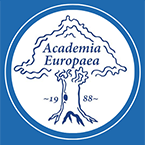
This year, ICREA Research Professor and ICN2 Phononic and Photonic Nanostructures Group Leader Clivia Marfa Sotomayor Torres was elected member of the Academia Europaea. This organization brings together eminent European scientists and scholars from the full range of Academic disciplines for the growth of scientific knowledge and education.
A new route to spin transport control in 2D materials revealed
2020-12-22
Researchers from the ICN2 Theoretical and Computational Nanoscience group, led by ICREA Prof Stephan Roche, the National University of Singapore, and the University of Grenoble Alpes (France) have predicted interesting properties of the low-symmetry structural configuration of a semimetal material (tungsten ditelluride monolayer, WTe2), which can provide new tools to manipulate spin. These results are relevant to the development of new nanodevices based on all-electrical spin control.
Our best wishes from the ICN2 bubble...
2020-12-24
